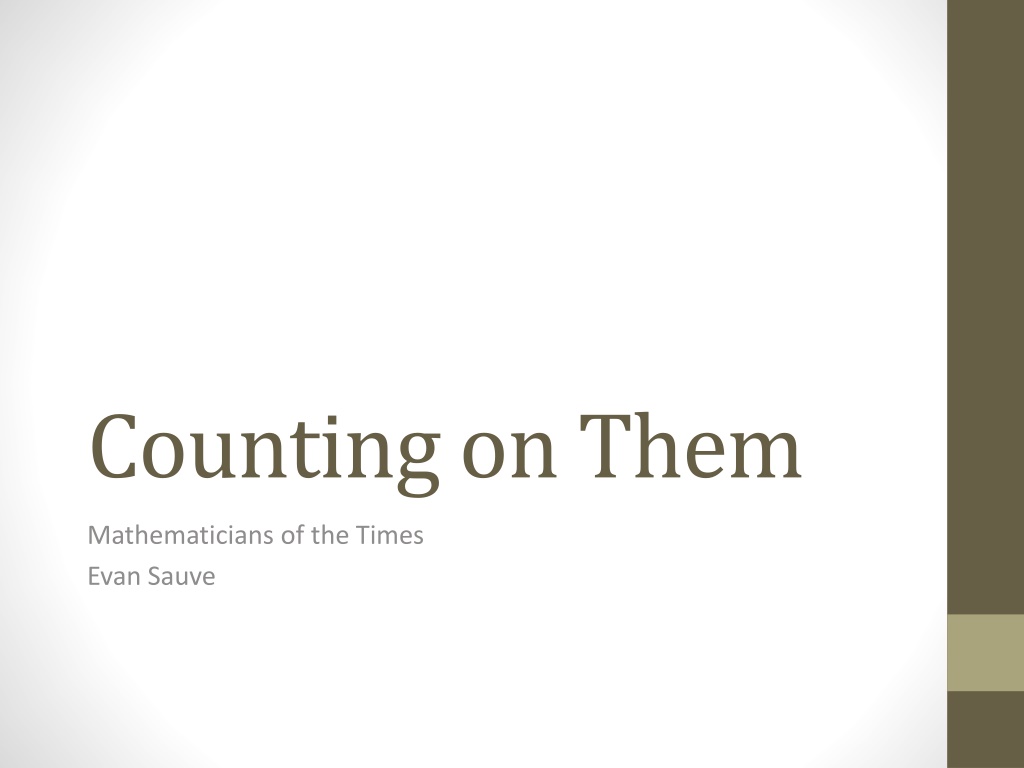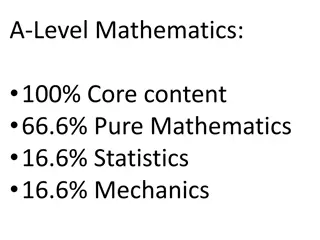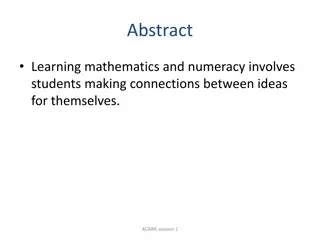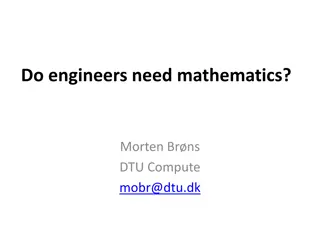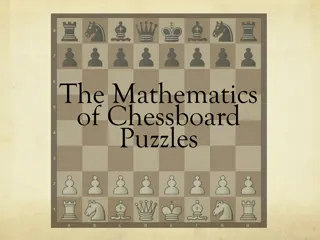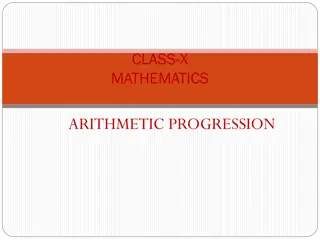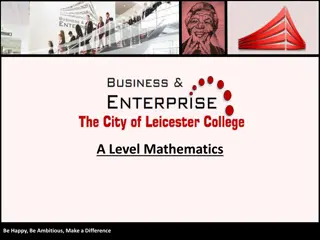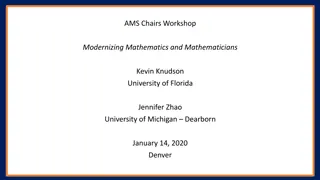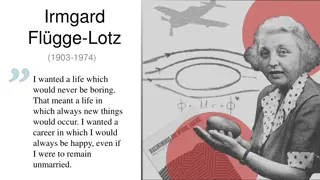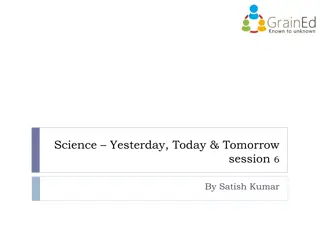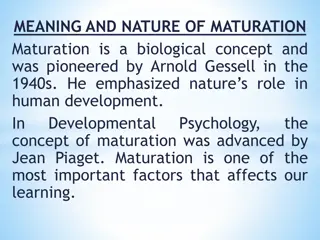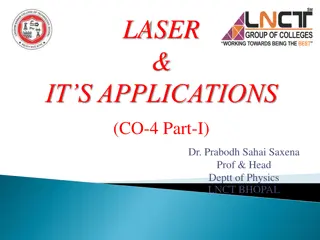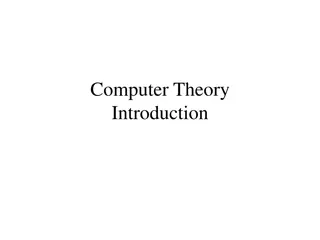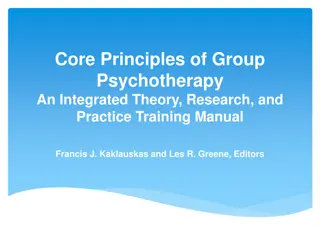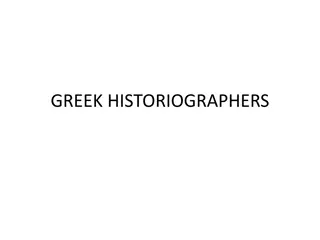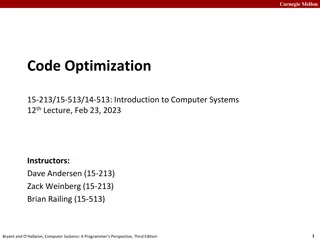Mathematicians Through Time: Pioneers in Mathematics
Delve into the lives and contributions of influential mathematicians throughout history, from Pythagoras and Euclid to Archimedes, Fibonacci, Descartes, and Isaac Newton. Learn about their groundbreaking discoveries, from the Pythagorean theorem to the Fibonacci sequence and the Cartesian plane, shaping the foundations of modern mathematics.
Download Presentation

Please find below an Image/Link to download the presentation.
The content on the website is provided AS IS for your information and personal use only. It may not be sold, licensed, or shared on other websites without obtaining consent from the author. Download presentation by click this link. If you encounter any issues during the download, it is possible that the publisher has removed the file from their server.
E N D
Presentation Transcript
Counting on Them Mathematicians of the Times Evan Sauve
Pythagoras of Samos I was born circa 570 BC in Samos (an island in Greece). I traveled to Egypt, in search of wisdom. I might have been the first man to call himself a philosopher (lover of wisdom). I started a religion and it was quite successful. The practices were all based on my philosophies. A well-known mathematical theorem bears my name. I did not discover it; I proved it.
Euclid of Alexandria I was born circa 300 BC. My birthplace is unknown, but my residence was Alexandria, Egypt. My name is Greek, and means Good Glory. My book Elements was used as the primary textbook for mathematics until well into the 1800s. I am considered the father of geometry.
Archimedes of Syracuse I was born circa 287 BC in Syracuse, Sicily. I am known for my work on siege engines and screw pumps that now bear my name. It has been claimed that I built machines that could lift ships out of water or set them on fire with an array of mirrors and lenses. Eureka! (I have found it) is what I shouted when I discovered that the upward buoyant force that is exerted on a body when submerged in a fluid is equal to the weight of the fluid that the body displaces. This principle now bears my name. I was killed during the Siege of Syracuse by a Roman soldier. He asked me to go with him to be executed, but I was too busy doing a circles problem in the sand to follow him.
Fibonacci I was born circa 1170 in Italy. My book Liber Abaci (Book of Calculation) helped spread the Hindu-Arabic numeral system through Europe. (It s the one we still use.) The popular mathematical problem the bee ancestry code is solved using my sequence. My sequence is also used the approximate the golden ratio. 1, 1, 2, 3, 5, 8, 13, 21, 34, 55 are the beginning terms of my sequence.
Ren Descartes I was March 31st, 1596 in La Haye en Touraine, Kingdom of France. I am well-known for my work in both philosophy and mathematics. I am known as the father of analytic geometry the bridge between algebra and geometry. I am famous for needing to prove everything, including my own existence, which I felt I did by reasoning I think, therefore I am. (if thoughts are happening, there must be a thinker there thinking them up) The Cartesian plane was my invention.
Isaac Newton I was born December 25th, 1642 in Lincolnshire, England. I share credit for the invention of Calculus, even though Gottfried Leibnitz didn t release his work until four years after mine. Based of the work of scientists before me, I formulated the laws of motion and universal gravitation. This was released in my book Philosophi Naturalis Principia Mathematica (Mathematical Principles of Natural Philosophy). An apple probably didn t fall on my head.
Leonhard Euler I was born April 15th, 1707 in Basel, Switzerland. I gave mathematics the ideas of notation for a functions and for summation. A circle with nine specific points that can be inscribed in any triangle bears my name. A line, bearing my name, shows that the circumcentre, centroid and orthocentre of a triangle are collinear.
Carl Friedrich Gauss I was born April 30th, 1777 in Brunswick, Duchy of Brunswick-Wolfenb ttel, Holy Roman Empire. I am considered the last great mathematician. Since my time, mathematics has developed too much for anyone to be a master of all the branches. I am a successful contributor to probability. In primary school, I was asked to find the sum of integers between 1 and 100. I said the answer (5050) within seconds of being asked. I am often called The Prince of Mathematics.
Alan Turing I was born June 23rd, 1912 in London, England. I formalized the ideas of computation and algorithms with a machine I made. It was a general purpose computer. I am widely considered the father of theoretical computer science and artificial intelligence. During World War II, I worked for the Government Code and Cypher School, Britain s codebreaking centre. I led a group focused for German naval cryptanalysis.
